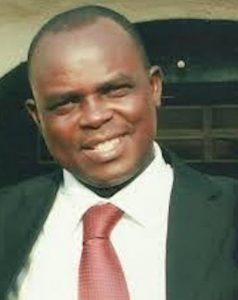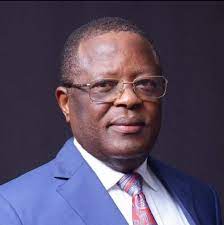By Bola BOLAWOLE
turnpot@gmail.com 0807 552 5533
Nigeria, as I have often said, is a country of one scandal, one minute. Before you have settled down to digest one, another happens! So, you hurriedly sweep the previous one under the carpets to have enough room for the latest! Our carpets, thus, are bulging, threatening to burst any time-t, as they say, at the seams!
The latest controversy is over Nigeria’s seemingly bloated delegation to the ongoing COP28 meeting in Dubai, United Arab Emirates. Nigeria’s delegation is the third largest, coming after the host country, UAE and Brazil and sharing the bronze medal podium with China. UAE (4,409) has the largest-ever registered delegation of any country, followed by Brazil (3,081) and then China and Nigeria tying at 1,411.
Other countries with a “bloated” delegation of 1000+ delegates are Indonesia (1229), Japan (1067), and Turkey (1045). Six countries have between 750 and 900 delegates, and these include three African countries (Morocco, 823; Kenya, 765; and Tanzania 763). Six other African countries have a delegation of over 500; namely: Ghana, 618; Uganda, 606; Congo DR, 590; Egypt, 656; Senegal, 560 and Chad, 554. Only three countries sent no delegation to COP28: Afghanistan, Myanmar and San Marino.
Controversies have trailed the sheer number of Nigeria’s delegates; and this is understandable. I would prefer, however, that we give due consideration to who the delegates are, on whose ticket they are attending the conference, what role they have to play there, and the significance or otherwise of the conference itself to Nigeria.
Hysteria has become an important part of public discourse here. Few people still retain a measure of confidence in, and support for, the government, be it at local, state or federal level. And this is not misplaced, judging by the actions of the government at all levels and tiers. So, every action of the government is treated with suspicion.
No matter how fabulous the allegation levelled at the government is, the government is deemed guilty as charged. Here, the contrary is seldom proved, even when the government wakes up later in the day to state its own side of the story. And, sadly, as the elders say, it is not every ear that hears “we are going” that also hears “we are back”!

That was the situation on ground before COP28. Of course, still trending is the politics of the last presidential election – which can best be described as that of throwing the baby away with the bathwater. Or, better still, throwing Asiwaju Bola Ahmed Tinubu under the bus. But when the same Tinubu douses himself with petrol and stands by the fire-place, he makes the job easier for his detractors!
Many of those condemning Nigeria’s COP28 participation on account of the parlous state of our economy may know little about the conference. For many, all they care about is the sheer number of delegates and the cost of taking care of them in Dubai – cost of flight tickets, lodging and feeding, estacodes, etc. If flight tickets alone are said to gulp about N1 billion, then, the other logistics will cost some more billions. That is humongous, to be frank. A country we are told is broke; that is going everywhere a-borrowing; that is asking even the multi-dimensionally poor to still tighten their belt – such a country should not be seen engaging in the many profligacies that have hallmarked Tinubu’s six months in office.
So, my first reaction was to ask: What kind of conference is this? What benefits will accrue to Nigeria? Who are those attending? I, too, was alarmed at the sheer size of the delegation; just as I was at Tinubu’s large delegation to his first United Nations General Assembly meeting in New York, USA. Are these signs of things to come and will this president always travel larger-than-life; the Mansa Musa of our times? Can we not achieve the same goals with less resources, seeing resources are scarce these days? Or are they not truly scarce as the government itself keeps drumming it in our ears?
But, then, I looked at the other participating countries and marveled at the sheer number of delegates: Added together – 97,000 actual participants and 3,000 participating virtually! There must be something, then, about this year’s COP28 because the number of those attending, not only from Nigeria but from all over the world, is unprecedented, being about twice the number that attended last year’s conference (COP27) at Sharm El-Sheikh in Egypt.
I decided to ask more questions. What is COP28? COP means “Conference of the Parties”. The “Parties” being countries subscribing to the UN Framework Convention on Climate Change. In short, Climate Change summit. COP came into force in 1994. Its first meeting was in 1995. 196 countries have signed up for COP.
COP28 goals are: To move the world towards achieving the Paris goals; fast-tracking the move to clean energy sources; slashing greenhouse gas emissions before 2030; delivering money from richer to poorer countries; and working on a new deal for developing countries.
COP28 specifically aims at improving lives; providing access to clean air and water; healthy food for all; healthy nature/environment; and safe and secure life for all. Parties meet annually to measure progress made as well as negotiate multi-lateral responses to climate change.
To achieve its aims, COP28 will strive at the decarbonization of the energy sector, which accounts for three-quarters of global greenhouse gas emissions. Topics for discussion at the conference, thus, include: Report on the worldwide implementation of the landmark Paris Climate Accord of 2016; the future of fossil fuels; climate finance for poorer countries; and setting up of a fund to pay for climate change.
Even an illiterate knows that our environment is getting more heated up although he may not know why. Africa today suffers some of the deadliest impacts of a heating planet, such as drought, flood, and mass displacement. Witness the recent flood disaster in Somalia that killed hundreds and displaced millions, with the attendant humanitarian and healthcare challenges.
Africa is responsible for less than five percent of global emissions but is disproportionately affected by negative climate change impact. Thus, for it, climate change issues are not just a matter of urgency, they are, appropriately, also a matter of survival. As a result, African nations have recently woken up to the realization that their voice must be heard loud and clear and their presence felt more at COP meetings.
Africa’s needs are: A just energy transition from fossil energy to renewable and safer energy; climate change finance; and funding for adaptation.
Richer countries promised $100 billion annually in climate financing funds but only $83 billion was collected. Most of it ended up being given not to African countries that needed it most but to countries outside Africa whose voices were loudest.
Africa needs $500 billion in climate change adaptation costs through 2030 but only $11 billion was available in 2020. At last year’s COP27 in Egypt, a Fund for loss and damage was, at long last, approved but not a dime has yet been collected. And time is running out! If by 2030, seven years from now, the developed countries abandon fossil fuels for renewable energy, what becomes of our crude oil and gas? The same fate that befell coal stares us in the face!
Africa is warming up faster than the developed countries. The sea level is rising faster in Africa than elsewhere, with no resources and or technology to tackle the menace. Climate change impacts Africa’s development more than it does the developed countries.
It is in the face of these challenges that African countries held their First African Climate Summit in Nairobi, Kenya last September and their demands include: That richer countries should commit to past funding commitments; reform unfavourable tax regimes; reduce borrowing costs for African countries; and restructure debts. They also demanded the right of African countries to use gas as a transition fuel.
It is clear from the above that Africa needs COP28. Despite this realization, Nigeria and some other African countries have been criticized for their large delegation to COP28. Kenya and Tanzania, for example, have been vilified along with Nigeria. But the countries have fought back, explaining that not all the delegates were sponsored by their home government. Nigeria, for instance, said only 422 of the 1411 were on its sponsorship. Many of those in Dubai were private individuals or those sponsored by private organizations. Some registered but attended online. The point was also made that the time has come for African countries to take Climate Change seriously.
From the foregoing, it cannot be denied that Nigeria has a serious stake in COP28. Nigeria is Africa’s largest country and economy. Besides, enlightened self-interest makes it mandatory for it to take the front seat at any Climate Change forum because of its extensive extractive economy. Our concern, then, should be whether the right people are those who made the delegation; whether they are there for the business of COP28; and whether Nigeria gets value for money.
Government’s media machine should be proactive rather than engage in expensive but usually ineffectual damage control measures. Not every ear that hears the report deliberately couched to damage will hear or believe your own response belatedly made.
*Former Editor of PUNCH newspapers, Chairman of its Editorial Board and Deputy Editor-in-chief, BOLAWOLE was also the Managing Director/ Editor-in-chief of THE WESTERNER newsmagazine. He writes the ON THE LORD’S DAY column in the Sunday Tribune and TREASURES column in New Telegraph newspaper on Wednesdays. He is also a public affairs analyst on radio and television.





















